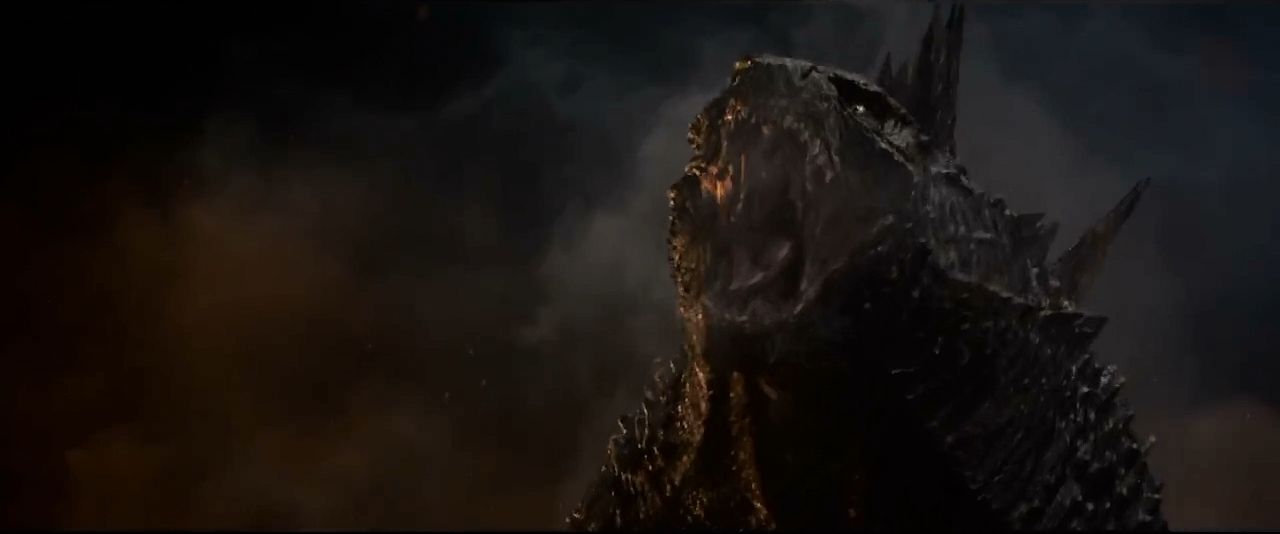
Long version: Godzilla 2014 has a light sprinkling of nods and tributes to previous films, both inside and outside of the franchise. It is very much informed by the late Showa films such as Godzilla vs Mechagodzilla, or Invasion ogf Astro-Monster, in which Godzilla is more the hero than the antagonist. Gareth Edwards has made an entertaining film, which may not have the strongest protagonists, but I found their story worth watching. The MUTOs are very different from anything Godzilla has previously faced. It'll be interesting to see what the Big G goes up against next.
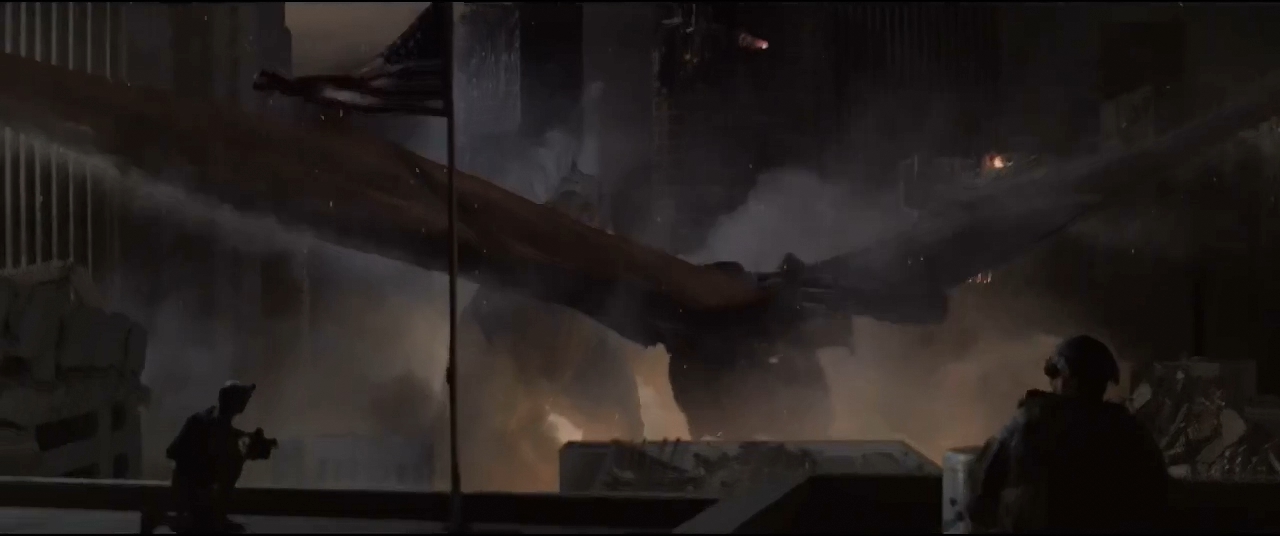
Dr. Serizawa, a character named for the 1954 original, is played by Ken Watanabe. He's one of the most fascinating characters in the film. In the original, he invents the oxygen destroyer, which ultimately kills Godzilla. However, there is a lot more of Dr. Kyohei Yamane in the 2014 iteration of Serizawa. Dr. Yamane wanted to study the creature, but is eventually forced to concede that saving Tokyo is a greater priority. In Godzilla 2014, Dr. Serizawa has been studying the monster for a very long time. And according to the comic prequel, so has his father. It gives me a little warm feeling to note that in some way, someone has finally gotten time to study Godzilla.
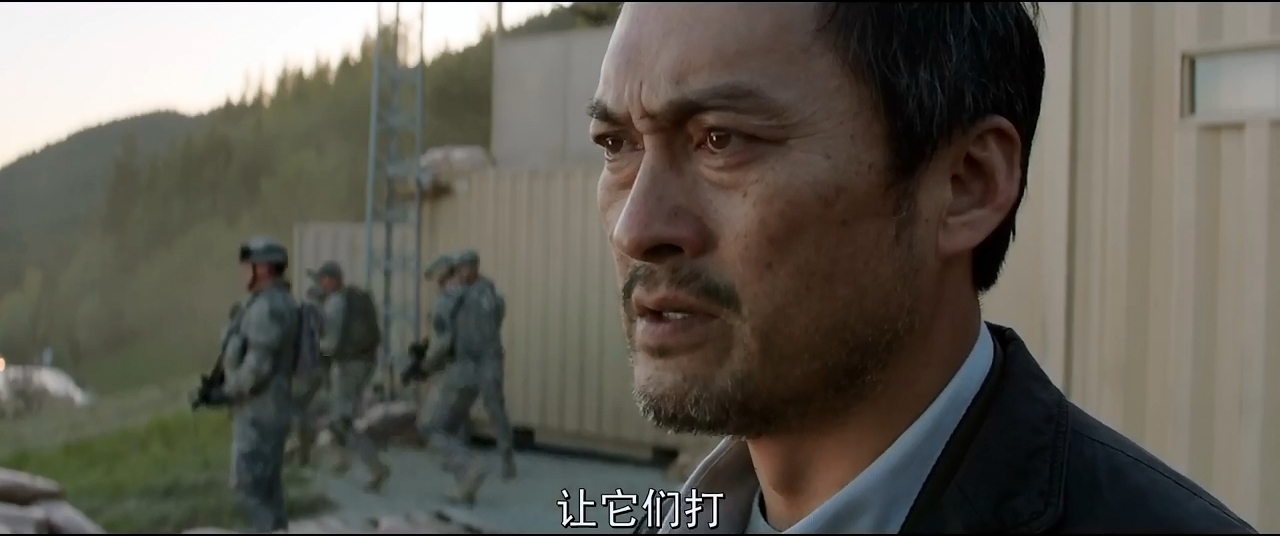
There is a nice nod to 2002's Godzilla, Mothra, King Ghidorah. Godzilla's finishing move on the male MUTO is to smash it with its tail, in a very similar fashion to Godzilla smashing Mothra.
For some of Godzilla's history, Godzilla's dorsal plates have glowed when he breathes his terrifying atomic fire. Only in the Milennium series did the directors begin to play with that. In Godzilla 2000, the sizzling of the dorsal pllates indicates when Godzilla is about to use his breath, to the detriment of the creature that has stuck Godzilla's head in its mouth. In Godzilla vs MechaGodzilla and Godzilla: Tokyo S.O.S., Godzilla's fins sputter with light and make a thumping noise when he's about to blast something. This is an innovative way to increases the dramatic tension. In Godzilla 2014, after a long battle without using th atomic breath, there's a shot of Godzilla's tail, and a very subtle glow climbs up the spines from the tail, then rushed up to the head just before Godzilla disgorges hot atomic death. It was one of the most fantastic and satisfying nods to a fandom I have ever experienced.
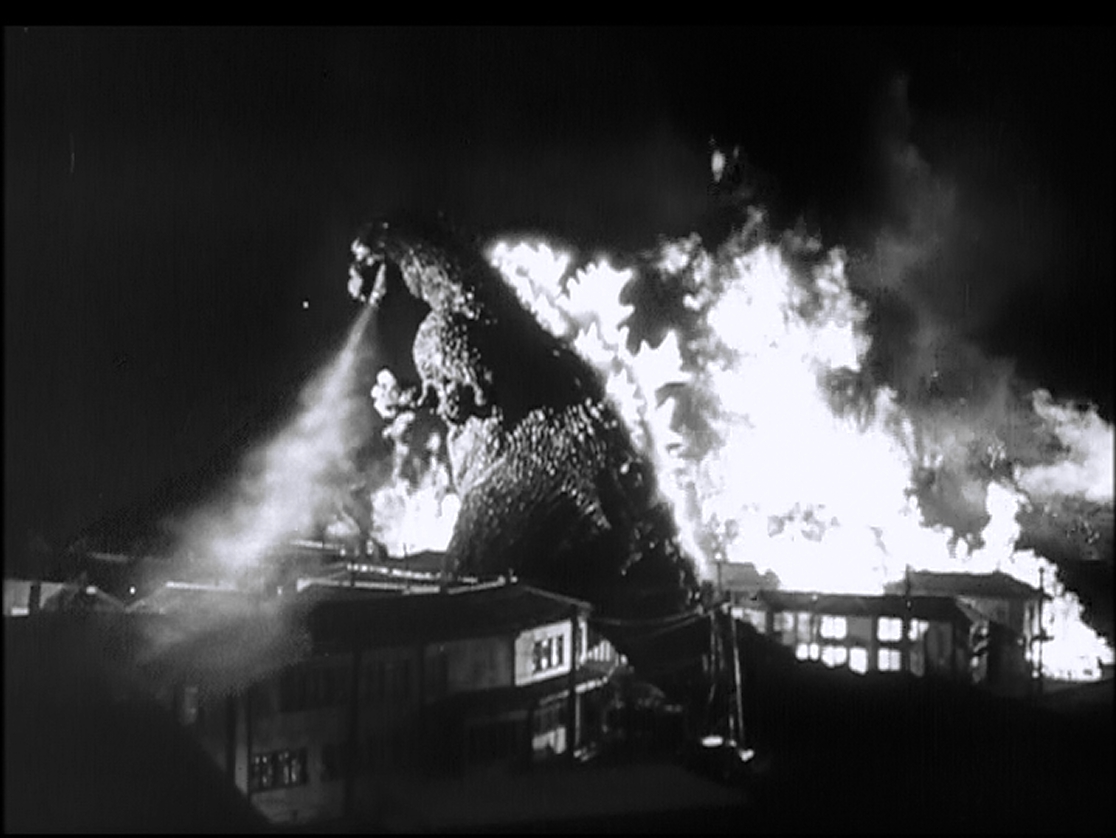
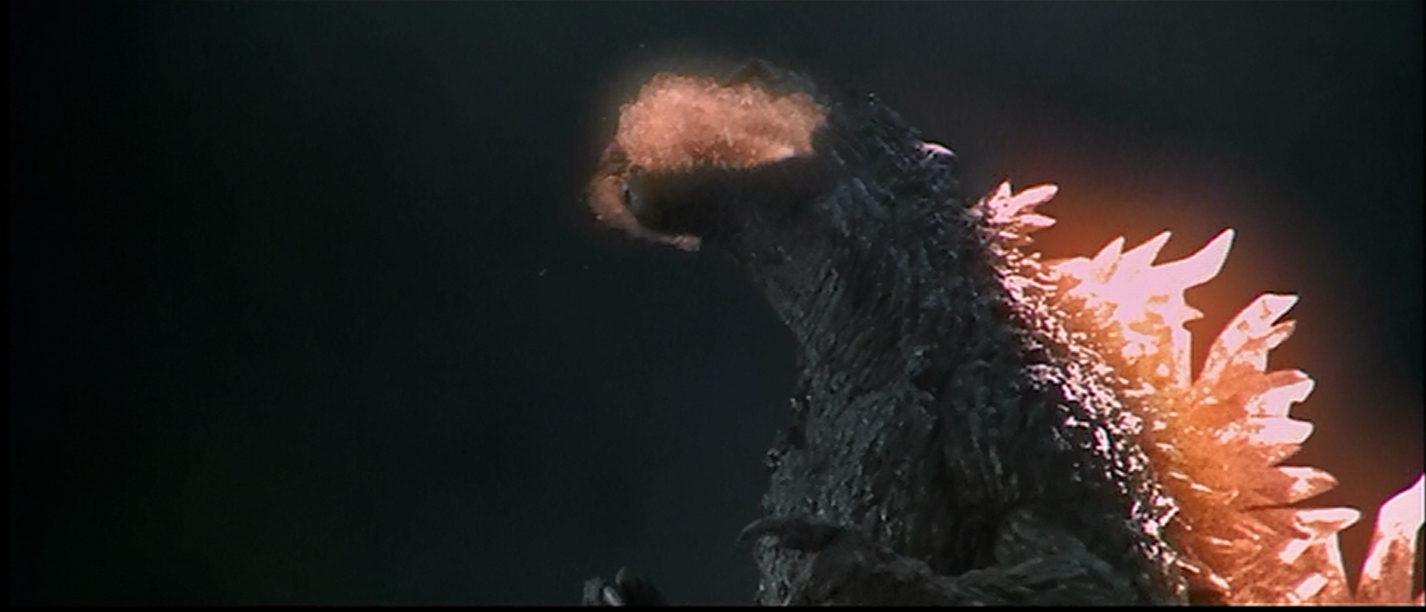
For those who have been following my blog, the 'military is useless" meme is something that's very prevalent in the Showa Godzilla films. This wavers a bit in the Heisei series, when humans build Mechagodzilla, and actually come very close to killing Godzilla. But tanks, rockets, jets, and helicopters all serve little purpose other than to make pretty explosions as they demonstrate how tough the monster is. And this is right. In Godzilla 1998, Godzilla was a military problem. With no giant monster to fight, the conflict was between Godzilla and the military. If the solution to the giant monster problem is enough ordinance, or the special ordinance, then the solution to the plot is waiting for that ordinance to be delivered. And that's dull. It's much of what made Godzilla 1998 so improbable. In order to keep the military from destroying Godzilla in the first reel, the 50 meter tall lizard somehow avoided detection. Whoops! We sort of lost this 18-story building. Small wonder the film had credibility problems.
Godzilla is the hero of the film, and the plot manages this without making it silly. The relationship is perhaps a little too cozy, the aircraft carrier group traveling a bit close to Godzilla in the approach to San Francisco.
Kim Newman is correct in that the inspiration for the plot could have come from the unexpectedly magnificent 1995 Gamera, Guardian of the Universe. Godzilla is an apex predator from the past, come to destroy the giant monsters, not because he's an ancient guardian, but because he's hungry, and MUTOs are what he hunts.
That said, the teasers and trailers have been deceptive, and I find that interesting. For example, the initial Comic-Con teaser shows the body of a creature that is not in the film.
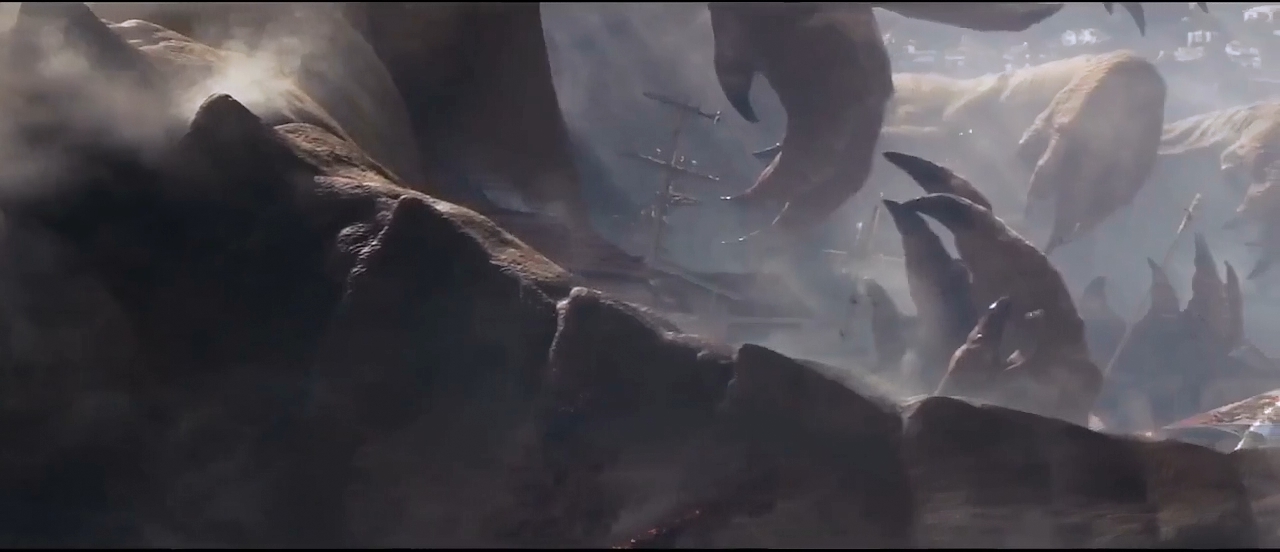
This awesome speech? Not in the film.
And a lot was made of Bryan Cranston, who doesn't make it into the second third of the film. Still, I enjoyed the film, will be happy to buy it and watch it in the years to come. As I write this, a sequel has been confirmed, so here's to a long, healthy franchise to the King of the Monsters.
No comments:
Post a Comment